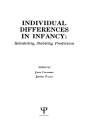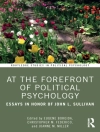Clinical Neuropsychology is a vast and varied field that focuses on the treatment, assessment and diagnosis of a range of cognitive disorders through a study and understanding of neuroanatomy and the relationship between the brain and human behavior.
This handbook focuses on specific Neuropsychological disorders. It covers each of the classification systems involved before moving on to specific types of disorders from neurodevelopmental to neuropathological as well as brain injuries, trauma and neurodegenerative disorders.
This handbook not only provides an in-depth overview of these Neuropsychological disorders, but also explores the history of the field as well its global challenges.
The handbook is an essential tool for clinicians and scientists, as well as postgraduate students and researchers in a range of disciplines exploring the area.
PART I BACKGROUND CONSIDERATIONS
PART II NEURODEVELOPMENTAL DISORDERS
PART III NEUROLOGICAL DISORDERS
PART IV NEUROCOGNITIVE DISORDERS
PART V TRAUMATIC BRAIN INJURY
PART VI PSYCHIATRIC DISORDERS
Table des matières
Chapter 1: History and Advances in Clinical Neuropsychology – Gregory J. Boyle, Charles J. Golden, S.-H. Annabel Chen, Tatia M.-C. Lee, Dan J. Stein, Yaakov Stern, and Barbara J. Sahakian
Part 1: Background Considerations
Chapter 2: Role of DSM-5, ICD-11, and ICF/ICIDH-2 in Neuropsychological – Hannah E. Brunet, Mary L. Malik, Larry E. Beutler
Chapter 3: Neuropsychological applications related to the Research Domain Criteria (RDo C) – Scott A. Langenecker, Katie L. Bessette, Rebecca E. Easter, Leah Thomas, Mary L. Phillips, Mindy Westlund-Schreiner
Chapter 4: Clinical Neuropsychology in the Era of Neuroimaging – Dominique Makowski, S.-H. Annabel Chen, Rasmus Rosenberg Larsen, Scott O. Lilienfeld
Chapter 5: Genomics and phenomics – Katherine Lopez, Ruben C. Gur, Raquel E. Gur
Chapter 6: Neurobiology of Decision-Making – Jon E. Grant, Austin Blum
Chapter 7: Sex differences in neurocognitive domains – Ruben C. Gur, Katherine Lopez, Tyler M. Moore, Raquel E. Gur
Chapter 8: Cognitive Reserve in Healthy Aging and Neurodegenerative Disease – Eleanna Varangis, Anja Soldan, Yaakov Stern
Chapter 9: Global challenges in neuropsychology – Boyle et al.
Part 2: Neurodevelopmental Disease
Chapter 10: Intellectual disabilities – Kerim Munir
Chapter 11: Communication disorders – Deanna Swain, Rebecca Elias, Elysha Clark-Whitney, So Hyun Kim
Chapter 12: Autism spectrum disorder – Li Fei, Mingyu Xu, Juehua Yu, Miao Cao
Chapter 13: Attention-deficit/Hyperactivity disorder – Alysa E. Doyle, David R. Coghill, Tobias Banaschewski
Chapter 14: Specific learning disorders – H. Lee Swanson, Jennifer Kong, Stefania Petcu
Chapter 15: Motor disorders – Andrea E. Cavanna, Andrea Nani
Part 3: Neurological Disorders
Chapter 16: Motor neuron disease and related autoimmune disorder – Niall P. Pender, Marwa Elamin, Thomas Burke, Orla Hardiman
Chapter 17: Multiple sclerosis and other demyelinating disorders – Peter A. Arnett, Anthony Feinstein, John De Luca
Chapter 18: Disorders of Purposeful Movements: Motor Intentional and Apraxic Disorders – Parunyou Julayanont, Kenneth M. Heilman
Chapter 19: Epileptic disorders – Gus A Baker, Sallie A. Baxendale
Chapter 20: Aphasias – Alfredo Ardila, Monica Rosselli
Chapter 21: Normal pressure hydrocephalus – Kayci L. Vickers, Robert Mc Govern, Felicia C. Goldstein
Chapter 22: Parkinson’s Disease – Angelo Antonini, Roberta Biundo
Chapter 23: Huntington’s disease – Julie C. Stout, Sarah L. Mason, Maria A. Rossetti
Part 4: Neurocognitive Disorders
Chapter 24: Delirium and Neuropsychological Disturbances – David J. Meagher, Dimitrios Adamis
Chapter 25: Mild cognitive impairment – Junhong Yu, Charlene L. M. Lam, Tatia Mei-Chun Lee
Chapter 26: Alzheimer’s disease – Michael M. Saling, Charles Malpas, Rachel F. Buckley
Chapter 27: Frontotemporal lobar – Megan Barker, Hannah Silverman, Stephanie Cosentino
Chapter 28: Lewy body disease – David P. Salmon, Denis S. Smirnov, J. Vincent Filoteo
Chapter 29: Vascular neurocognitive disorders – Esther van den Berg, Roy P.C. Kessels
Chapter 30: Neurocognition in HIV Patients: Evidence from CANTAB Battery – Amy R. Bland, Rebecca Elliott, Barbara J. Sahakian
Chapter 31: Creutzfeldt-Jakob and prion diseases – Carlton S. Gass, Ashok K. Verma
Part 5: Traumatic Brain Injury
Chapter 32: Moderate and Severe Traumatic Brain Injury – Alexander Olsen, Andrew P. Cwiek, Emily L. Dennis, Frank G. Hillary
Chapter 33: Post-concussion Syndrome – Molly J. Sullan, Aliyah Snyder
Chapter 34: Chronic traumatic Encephalopathy – Bennet I. Omalu, Jennifer L. Hammers
Part 6: Psychiatric Disorders
Chapter 35: Post-traumatic stress disorder (PTSD – Mark S. Greenberg, Kristin W. Samuelson, Roger K. Pitman
Chapter 36: Sleep-wake disorders – Michelle Olaithe, Romola S. Bucks, Maria Pushpanathan, Ivana Rosenzweig
Chapter 37: Alcohol-related disorders – Claudia Padula, Timothy C. Durazzo, Dieter J. Meyerhoff
Chapter 38: Substance abuse, prescribed medications, and toxin exposure – James J. Mahony, Liv E. Miller, Marc W. Haut
Chapter 39: Personality disorders – Anthony C. Ruocco, Elizabeth Infante, Liam Wright
Chapter 40: Neuropsychological impairment in psychotic disorders – Avi Reichenberg, Anthony S. David, Nina Zaks
Chapter 41: Neuropsychology and mental illness in youth – Stephen J. Wood, Kelly A. Allott
A propos de l’auteur
Annabel Chen Shen-Hsing is a Professor of Psychology and Director of Centre for Research and Development in Learning (CRADLE) at Nanyang Technological University (NTU), Singapore. She is a clinical neuropsychologist educated in the United States (Purdue University, West Virginia University, Medical College of Wisconsin) and conducted post-doctoral research in neuroimaging at the Lucas Centre, Stanford University School of Medicine. Her research seeks to understand disturbance in brain and behaviour using neuropsychological and neuroimaging techniques focusing on cerebellar contributions to higher cognition, optimizing cognition in aging neuroscience (active aging), and the science of learning to translate neuroscience for education.












